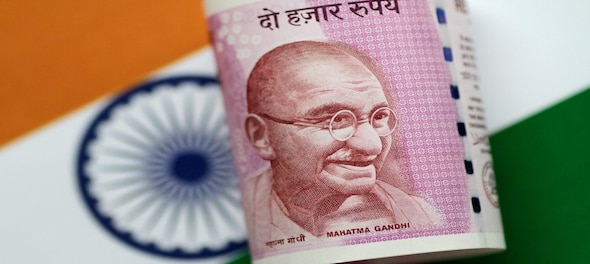
India and Japan on Monday concluded a $75 billion bilateral currency swap agreement, a move that is likely to pull up the Indian currency that has been the worst performing emerging market currency this year.
"With a view to enhancing financial and economic cooperation, governments of Japan and India welcomed the agreement to conclude a Bilateral Swap Arrangement (BSA) of $75 billion," said India-Japan Vision Statement issued after the summit-level meeting between the two leaders.
Though the aim of the agreement between the two nations is to strengthen the economic relations, the impact of exchange of interest and sometimes of principal in one currency for the same in another is likely to strengthen the rupee.
The rupee has lost almost 15 percent since January this year. Between April and September, the rupee has plummeted more than 7 percent to the dollar.
Here's how the currency swap agreement will help the rupee gain its value:
The currency swap, in this case, will mean that the central bank of Japan will accept rupees and give dollars to the Reserve Bank of India (RBI) and, similarly, the RBI will take the yen and give dollars to the Bank of Japan to stabilise each other’s currency.
By following this, the demand for the dollar is expected to fall. If the demand for the dollar falls and the supply exceeds the demand, then consequently the rupee will strengthen against the dollar.
Apart from the demand for the dollar, since the exchange rate is likely to be determined, the fixed exchange rate could boost imports.
When a currency is facing a dip in its value, the import bill of the country increases — one of the major reasons why the rising oil prices have a negative impact on India, the second largest consumer of oil. At this time, exporting goods is encouraged in order to fill in the fiscal and current account deficits.
The currency swap agreement will also help India reduce the cost of capital for the Indian companies that access or are connected with the overseas market and “will enable the agreed amount of foreign capital being available to India for use as and when need arises”, the finance ministry said in a release.
First Published: Oct 30, 2018 2:46 PM IST
Check out our in-depth Market Coverage, Business News & get real-time Stock Market Updates on CNBC-TV18. Also, Watch our channels CNBC-TV18, CNBC Awaaz and CNBC Bajar Live on-the-go!


Mark Mobius reveals how markets will react if NDA wins 400+ Lok Sabha seats
May 15, 2024 8:09 PM
Wine shops and bars to remain shut for 4 days in Mumbai in 4 weeks, check details
May 15, 2024 7:52 PM
INDIA bloc will win majority seats in Bihar, says Tejashwi Yadav
May 15, 2024 4:20 PM

